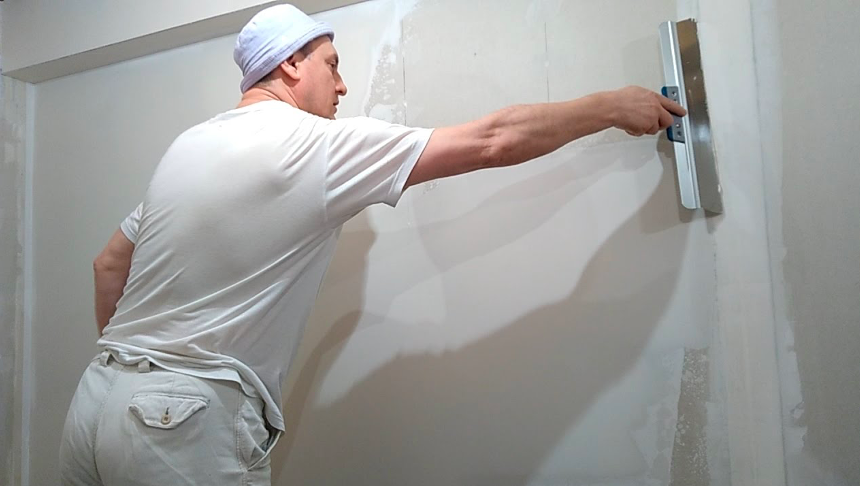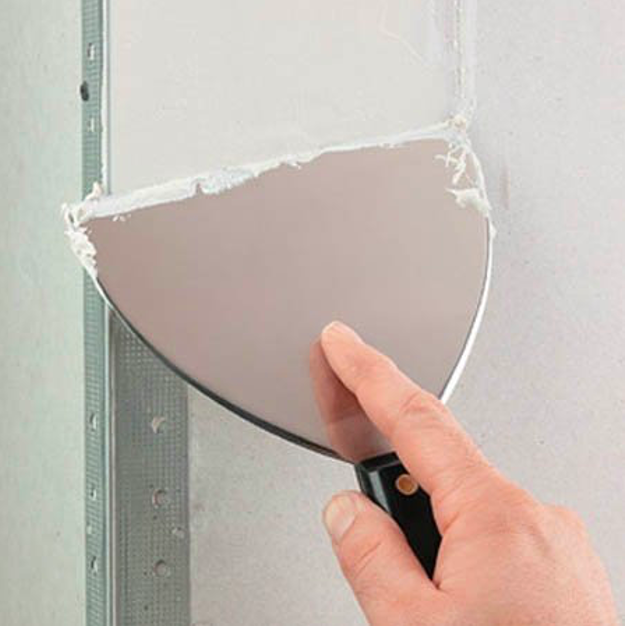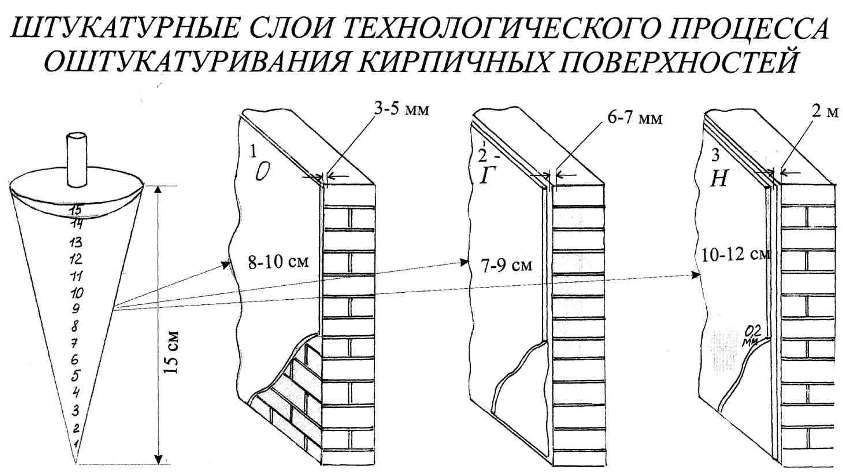When preparing walls for wallpaper, an important step is to apply finishing putty to the walls for wallpaper. This helps create an even, smooth surface that ensures the finished renovation looks great. In this article we will look at whether finishing putty is needed before wallpapering and how to choose the optimal composition for this task.
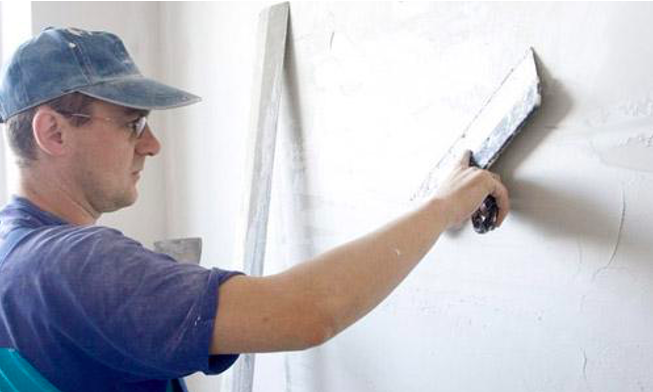
The content of the article
- Why do you need finishing putty?
- Selection of putty composition
- The process of applying putty with your own hands
- Russian manufacturers of high-quality putty
- Mistakes when applying putty
- Wallpaper on putty: features
- Conclusion
Why do you need finishing putty?
The main question that worries many is whether finishing putty on the walls is necessary for wallpaper. The answer is unequivocal - yes. Finishing putty helps hide minor irregularities and defects in the walls, creating a perfectly smooth surface for subsequent wallpapering. This is especially important if you have chosen wallpaper with a fine texture or glossy wallpaper, as they are not forgiving of even the smallest imperfections in the walls.
Selection of putty composition
The choice of putty material is an important step in preparing walls for wallpaper. A correctly selected composition will help to easily hide all unevenness and provide a perfectly smooth surface for subsequent wallpapering. Let's look at what criteria are important when choosing a finishing putty for wallpaper and what types of putty exist on the market.
Types of putty compounds:
- Plaster The putty is characterized by good adhesion to the surface and fast drying time. However, it is less resistant to moisture and may crack over time.
- Cement putty is characterized by increased resistance to moisture and durability, but requires a longer time to dry completely.
- Polymer The putty has excellent adhesion to the surface and resistance to moisture, and is not prone to cracking.
Main selection criteria:
- the faster the putty dries, the sooner you can start sanding and wallpapering;
- good adhesion ensures strong adhesion of the putty to the wall, which affects the durability of the coating;
- The putty composition should be easy to sand, providing a smooth and even surface without much effort.
Recommendations for selection:
- It is better to give preference to trusted manufacturers of putty mixtures.
- Read customer reviews and recommendations from professionals to determine which wallpaper finishing putty is best.
- If possible, request a sample of the product to test its properties on a small area of the wall.
Careful selection of putty composition is the key to high-quality and durable wall finishing. The right material will help you achieve the desired result without any extra effort and keep your walls looking great for a long time.
The process of applying putty with your own hands
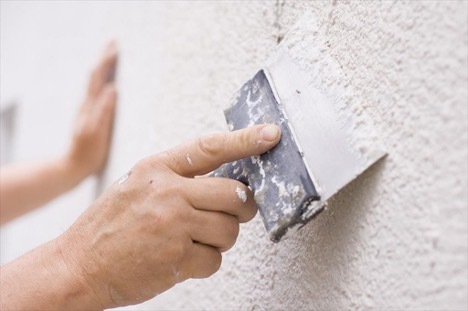
Do-it-yourself finishing putty on walls under wallpaper is a process that requires some skill and care. It is important to thoroughly clean the wall from dust and dirt before applying putty. It is recommended to apply the putty in thin layers, ensuring each layer is completely dry before applying the next. After the putty has completely dried, the walls must be carefully sanded to achieve a perfectly smooth surface.
Russian manufacturers of high-quality putty
There are several manufacturers of putty mixtures operating in Russia, offering high-quality products for finishing work. Here are some examples:
- Founds is a Russian company founded in 1998. It specializes in the production of building materials, including putty mixtures.
- Hermes is another Russian manufacturer of putty mixtures, founded in 2006.
- Russian Paints. This is a company from Yaroslavl, engaged in the production of paints and varnishes, including putty mixtures.
Also on the market are various types of putty mixtures from well-known manufacturers. This can make it easier to select the optimal product for specific applications.
One of the Russian-made products is the gypsum-based finishing putty “Starateli”. It is intended for filling shallow potholes and cracks in the base in the process of preparing it for finishing.
Mistakes when applying putty
Carrying out repair tasks on your own is a labor-intensive and serious process. This fully applies to the process of applying finishing putty to the walls before wallpapering. Incorrect actions can cause undesirable effects such as cracks, uneven surfaces or even peeling of the wallpaper over time. One common mistake is insufficient surface preparation. The walls must be clean, dry and free of old finishing materials and dirt. Proper initial preparation is the basis for reliable adhesion of the putty and the absence of difficulties in the future.
The second mistake is a violation of application technology. This may be due to either the use of inappropriate tools or failure to follow the manufacturer's recommendations regarding the drying time of each layer of putty. It is very important to give each coat proper time to dry before applying the next coat. It is also important to choose the correct consistency of the putty mixture, following the manufacturer's instructions, to avoid the formation of air bubbles and other defects.
The third common mistake is insufficient quality control and incorrect final surface treatment. After the finishing putty of the walls under the wallpaper has been applied with your own hands and completely dried, the surface must be carefully checked for defects and treated with an abrasive material to achieve smoothness. Skipping this step may result in an uneven surface, which in turn will affect the appearance of the wallpaper.
Wallpaper on putty: features
Many people wonder whether it is possible to glue wallpaper using finishing putty. Yes, this is completely acceptable and even recommended, since the putty creates a smooth and even base, which ensures excellent adhesion of the wallpaper to the wall and a beautiful appearance of the finished repair.
Conclusion
Preparing the walls is an important stage in the renovation process, and applying finishing putty to the walls under the wallpaper plays an important role here. By choosing a high-quality putty composition and carefully preparing the surface of the walls, you will ensure the excellent appearance of your corridor for many years to come.
